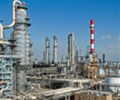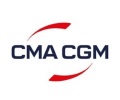Construction realities mix with relative dearth of LNG dealmaking

North American liquefaction terminal developers face pressure to find construction contractors that can build their terminals on time for fees they are willing to pay.
Over time, they may have to spend more for their facilities if they want to meet market demand.
That give and take reflects one dilemma for the export industry following Gastech: Who pays? How much do they pay? and who is responsible for cost overruns? A traditional lump-sum turnkey contract with a builder is supposed to answer those questions, but it can often be difficult to come to terms that meet everyone’s needs.
“These projects are inherently risky and if you don’t have a very capable experienced team, you can face a lot of challenges,” Darren Mort, the general manager of contractor Bechtel’s LNG business, said in an interview after the weeklong conference in Houston ended Thursday.
While the annual conference ended with the reality of what it costs and how long it takes to build a liquefaction facility in the US, it began with high hopes for lots of dealmaking to support financing of new terminals.
Along the way, there were a few preliminary agreements, but relatively few firm commercial deals. It was held in Houston, where many of the power brokers in the energy industry work, following last year’s Gastech in Barcelona, which is an end-user for LNG. Next year’s conference is set for Singapore, a trading hub for global LNG.
LNG Limited CEO Greg Vesey offered a muted assessment of the state of dealmaking in the LNG industry just days after his company announced reaching a much-needed agreement for the company’s proposed Magnolia LNG export terminal in Louisiana to supply 2 million mt/year of LNG to support a gas-to-power project in Vietnam. The deal is in term-sheet form and still needs to be finalized.
“It’s hard to say anyone is close in this market,” Vesey said in an interview. “First of all, you have the trade war, which kind of dampens the whole market. You had a really warm winter across Europe and Asia. Europe prices now are really low. So how do you get someone to go into their board, ‘I want to sign this deal for $7, even though I can get it right now for $4.50?'”
After describing an enthusiastic mood at the conference surrounding recent deal announcements, Freeport LNG CEO Michael Smith noted in an interview that preliminary agreements, such as memorandums of understanding, still have to be firmed up.
“It’s a tough market out there,” Smith said. “It just is.”
He cited “low prices, low margins, low spreads.”
Then there is the trade war between the US and China, which is expected to become the world’s biggest importer of LNG within a decade. Earlier this year, China raised retaliatory tariffs on US LNG to 25%. The subject was part of many conversations at the conference.
“The trade war hurts LNG because the largest buyer currently of new capacity is China, and we can’t do business with them,” Smith said. “It’s not constructive for LNG. But hopefully that will pass.”
Source: Platts

 Hellenic Shipping News Worldwide Hellenic Shipping News Worldwide, Online Daily Newspaper on Hellenic and International Shipping
Hellenic Shipping News Worldwide Hellenic Shipping News Worldwide, Online Daily Newspaper on Hellenic and International Shipping





















 PG-Software
PG-Software